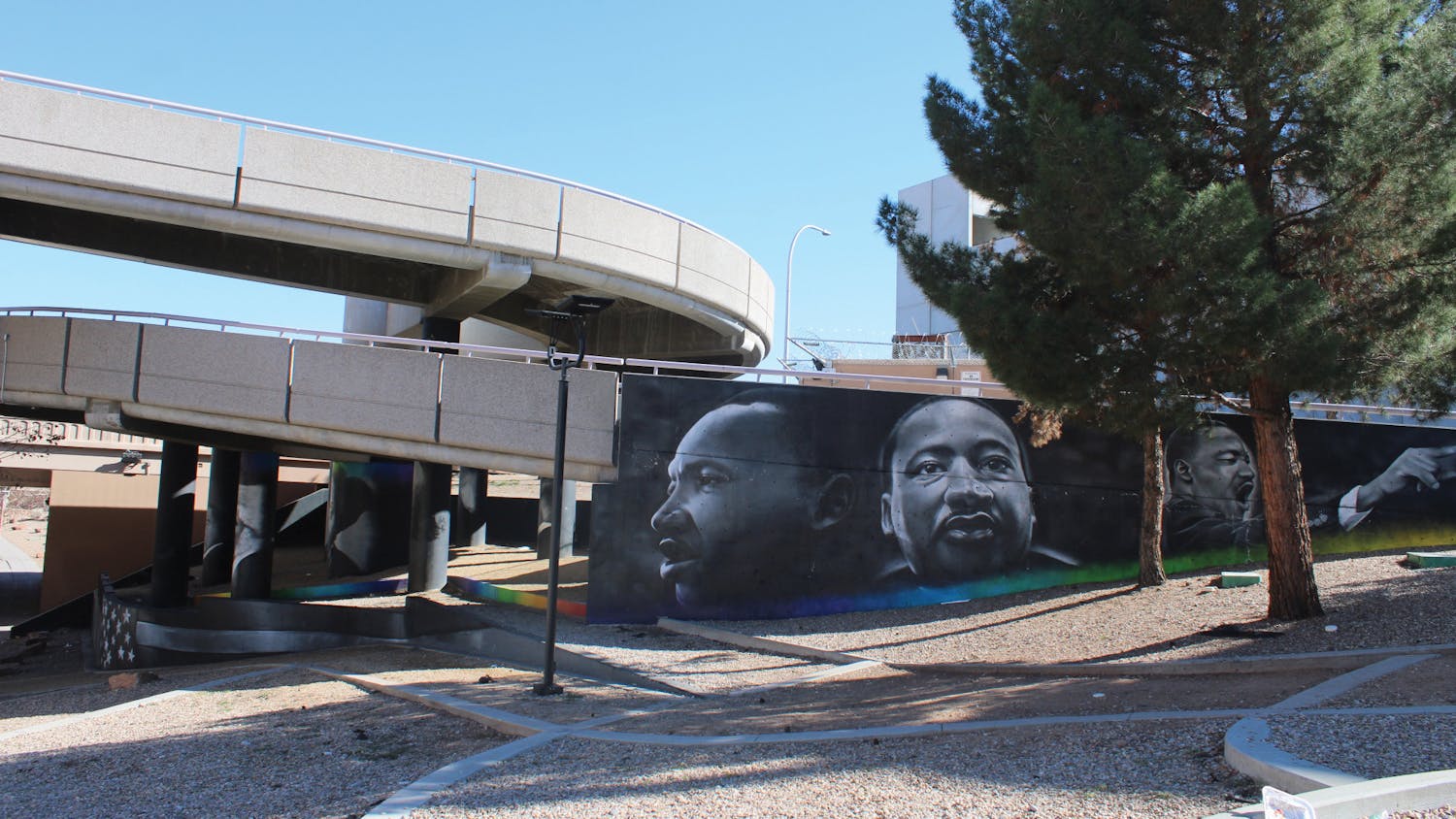Editor's note: This column is the opinion of the writer and not necessarily that of that paper.
While walking around the University of New Mexico’s main campus, I can’t help but see potential in the big green patches of grass distributed across campus. Not for more buildings or social areas for students, but for the creation of native bee habitats.
Yes, native bees. It may not make sense to some people, but many species of bees don’t use hives as habitats the way honey bees do. Native bees — 70% of bee species — burrow in the ground instead.
For this reason, I think UNM can put these empty patches of grass to better use and create ground habitats for these types of bees — complete with native pollinator plants for the bees to feed on. For too long the public’s concern for the loss of bees has been surrounding honey bees — they are seen more in popular culture and prices on honey has gone up in the last five years — but people forget that bees serve a much larger and more important purpose than just honey.
Although honey bees are important (I love honey bees as much as the next person), the hype should be about all bees because all bees pollinate.
I started thinking that UNM can play a pivital part in developing native bee habitats.
I attended a talk given by Danielle Bilot earlier this month and listened to her talk about her work at the University of Colorado. She holds a class all about building native bee habitats and promoting a thriving bee population through outreach and education.
Her suggestion was that parking lots were a solid solution to supporting native bee population growth, but has done a big portion of this work on the university’s campus. In parking lots, there is a large amount of open space for habitats to be created that could potentially save bee lives.
This matter concerns UNM for a lot of different reasons. Mainly because bees need the ability to feed while traveling from one habitat to the next.
According to Bilot, if these resources are not available, both large and small bees could be at risk of not surviving the flight from one feeding area to the next.
If UNM utilized the large patches of grass as bee habitats, it would provide the essential pollinator plants as well as dirt for bees to burrow into. Another important reason this would be good for the campus is its cost. A simple drip system could save on water compared to the sprinkler system installed now.
Maintenance would also be low cost. A mini training for how to care for the habitats would be necessary for existing ground maintenance workers.
Get content from The Daily Lobo delivered to your inbox
Bilot added that public involvement is essential to keeping the conversation about native bees relevant. By adding a small plaque on a wooden beam to the newly renovated habitat the public would be provided with information most people don’t have and wouldn’t have considered otherwise.
As an open campus, UNM has visitors passing through it constantly. It could continue snowball effect for native bee habitats being built all around Albuquerque if more people are talking about this as an option.
The city of Albuquerque began building native bee habitats in medians earlier this year.
I think a lot of push back from this initiative would be the safety of students and faculty. The fear of being stung is a fair one, but realistically bees are not aggressive by nature. The only time a bee will sting is if it feels it or its colony is being threatened, but otherwise it shouldn’t be an issue.
I truly believe that UNM has a role to play for the interest of bees and if more students talk about it, there’s a better chance that it could happen.
Alanie Rael is Co-Sports Editor and a reporter for the Daily Lobo. She can be contacted at sports@dailylobo.com or on Twitter @AllyRael.






